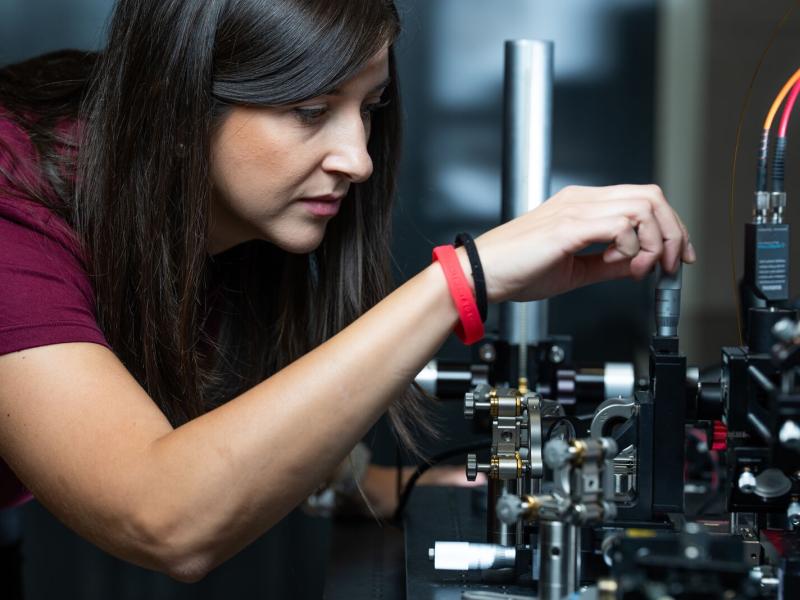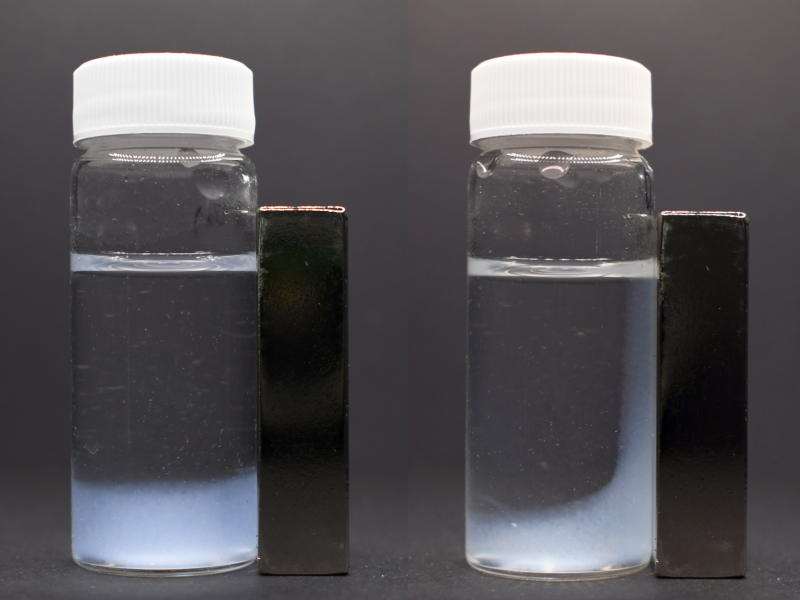
Chemistry
Chemistry
Essential to our future
Essential to our future
Researcher Scott Edmundson grows algae for biofuel.
(Image by Andrea Starr | Pacific Northwest National Laboratory)
The energy future of the United States relies on innovation. Our ability to control essential energy transformations will require harnessing the power of chemistry.
Chemistry permeates research advances being made every day at PNNL. In national security, chemistry forms the basis for exploring new ways to detect chemical signatures to track and deter chemical and biological threats. Within earth systems, chemistry at work within plants and microbes informs our understanding of the health of the planet. In the realm of energy storage, PNNL is working to discover and develop energy storage solutions that support a reliable, affordable, secure, and resilient grid. The fundamental science of chemical physics supports efforts in all these areas.
Tackling Complex Problems
Developing new forms of chemistry and innovating within established fields requires a team effort and the most advanced instrumentation.
Our catalysis research programs harness teams from across PNNL and the nation to tackle complex problems in many energy processes, including converting waste into fuel, creating efficient hydrogen fuel processes, or making biofuel out of plants resistant to breakdown. Each of these arenas is an invitation to PNNL scientists to engage—to improve in the catalytic process—increasing overall performance and lowering costs.
We continuously invest in this energy future, partnering for a $90 million investment in chemical, materials, and energy research in our Energy Sciences Center.




